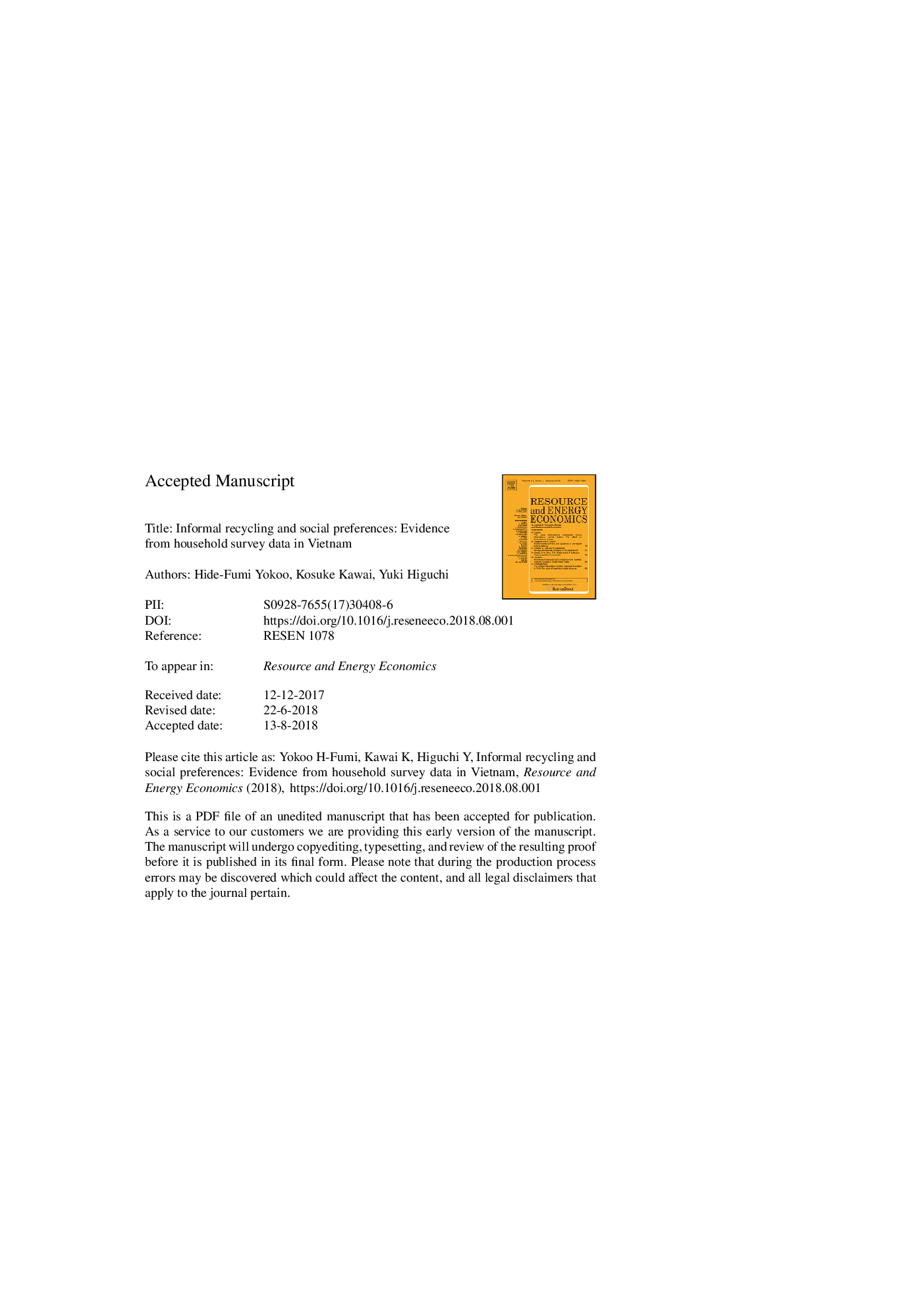| Article ID | Journal | Published Year | Pages | File Type |
|---|---|---|---|---|
| 11004944 | Resource and Energy Economics | 2018 | 52 Pages |
Abstract
This study examines the association between social preferences and recycling behavior in a developing country. A conceptual framework that modifies the impure altruism model with heterogeneous preferences and further incorporates the impure public good model is presented to study informal recycling behaviors. Based on survey data collected from 755 households in Hanoi, Vietnam, we find that the majority of sample households recycle all the recyclable materials they consume even though such recycling is not obligatory. Half the recycling households sell their recyclables to informal junk buyers, whereas the other half provide recyclables without monetary compensation. Our finding of voluntary recycling implies that a certain proportion of households have a positive marginal willingness to pay for an increase in the environmental public good. The results of the regression analyses show that recycling behavior is associated with altruism, as measured by a modified version of the self-report altruism scale. Among high-income households, recycling behavior is associated with inequality aversion, as elicited from a hypothetical game. These findings suggest that social preferences are important determinants of the private provision of public goods through the informal sector in a developing country.
Related Topics
Physical Sciences and Engineering
Energy
Energy (General)
Authors
Hide-Fumi Yokoo, Kosuke Kawai, Yuki Higuchi,
